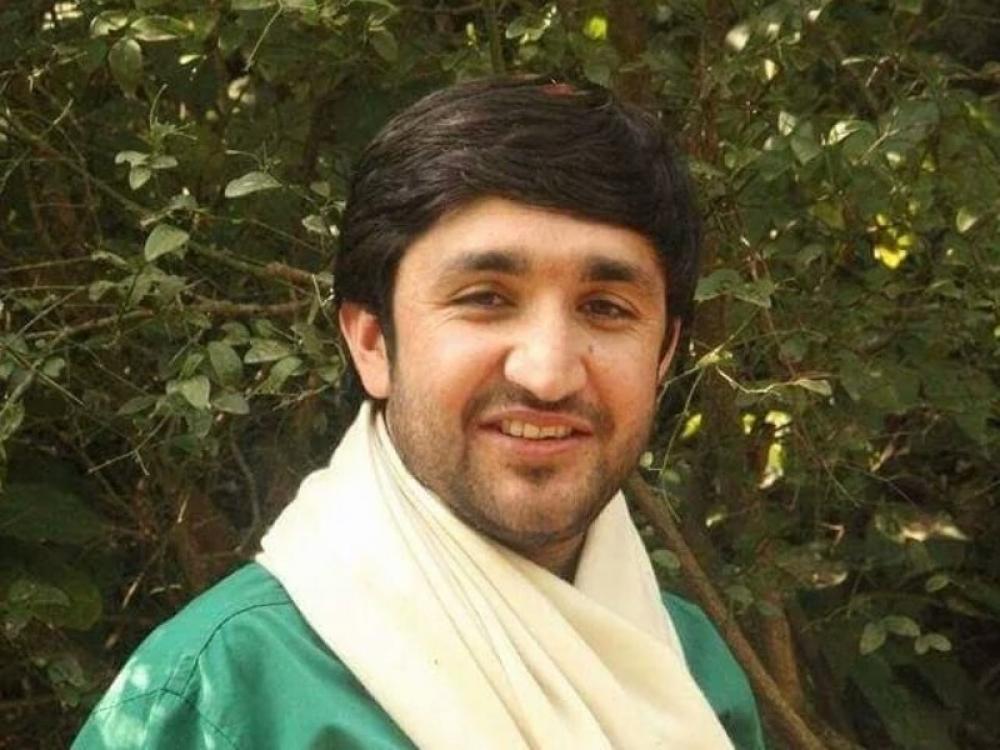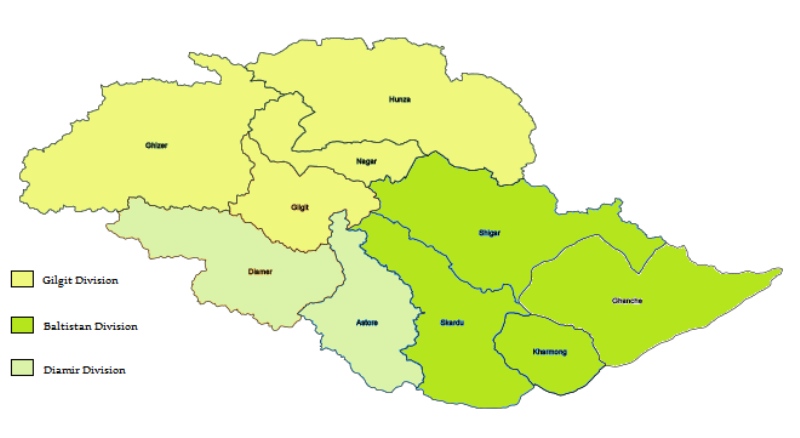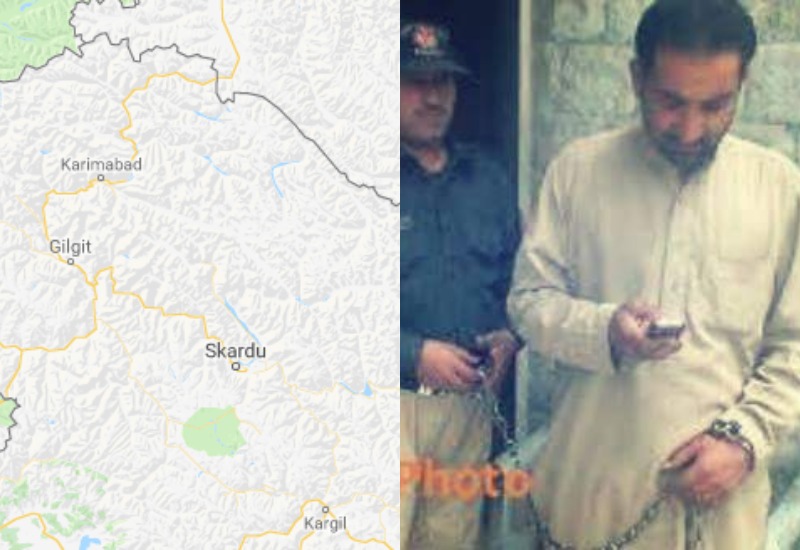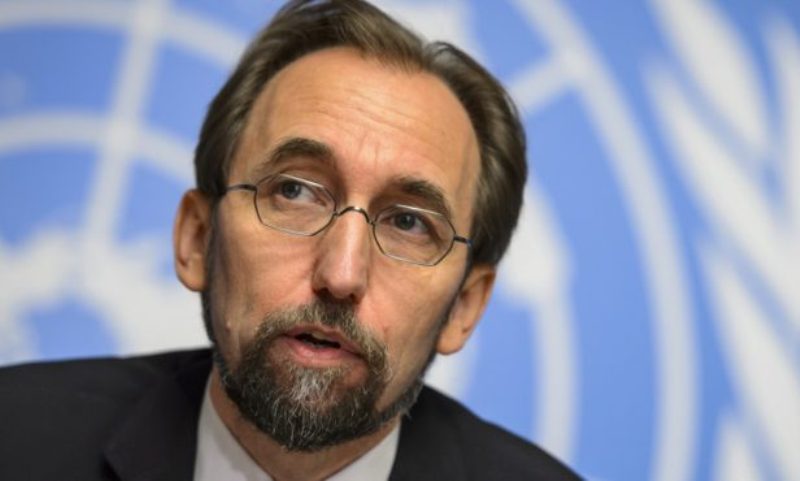Just Earth News | @justearthnews | 12 Jul 2018, 12:10 pm Print

Gilgit: In a letter to the United Nations Human Rights Commission (UNHRC), an activist from Pakistan's Gilgit Baltistan region while thanking the watchdog's High Commissioner for his recent report on human rights violation in Jammu and Kashmir and Gilgit Baltistan, has questioned why it lacked a detailed study on the Pakistani Administered Gilgit Baltistan, while it went at great length about reporting on Indian Administered Jammu and Kashmir.
In a 55-point letter, activist Sher Nadir Shahi, who is presently residing in another country, said that he would like Al Hussein to pay attention on human rights violations "in Pakistan Administered Gilgit Baltistan which is most an ignorant part of Jammu and Kashmir Issue."
From forceful occupation on native lands to slapping sedition charges on anyone who dares to raise a voice against Islamabad, the letter details the hardship people are subjected to in Gilgit Baltistan.

Gilgit-Baltistan is administered as three divisions and ten districts. Image: Balti sahib/Wikipedia
"Many activists of BNF, BNSO, KNM and other local parties have been arrested under Schedule-iv of ATA [anti terrorism act] charges and hundreds of activists confined to their houses and cannot move without permission of local police and administration. They are not allowed to participate in political gatherings and cannot protest for their rights," he wrote adding that the injustice cannot be highlighted for public opinion and consciousness.
Sharing the daily ordeal, Shahi says that objects like literature and fiction books too are banned in the Region and that two students have been sentenced to two years in prison for sending and receiving the aforementioned items.
"Establishment and Government of GB also banned non-political and pure literature book...they also arrested a student of ACCA and BNSO worker Sannaullah Khan who allegedly sent books from Rawalpindi and arrested Inayat Karim who was receiving books and magazines. Both have been imprisoned in Gilgit jails for more than two years," the letter reads.
Speaking about press freedom, the activist says while electronic media does not exist in Baltistan, print media acts as government mouthpieces.
"In Gilgit Baltistan there is no electronic media but print media is also under total control of establishment and local government."
Media cannot highlight the genuine issues particularly the real voice of indigenous nationalists and progressive movements who are demanding independence and their rights according to United Nation Resolutions.
Local media propagate fake news and statements of Government officials and establishment and do not give space to indigenous local voices. Through local media government agencies do propaganda against local people particularly nationalists," the letter reads.
Apart from the systematic suppression of ingenious voices, journalists are often subjected to torture and face sedition charges for writing pieces critical of the government. He says that journalist Shabbir Siham who is facing “terrorism” charges, had actually written a piece highlighting the issue of women trafficking in Gilgit Baltistan.
"On 24th October 2017, Committee to Protect Journalist (CPJ) issued a report regarding the threats made to journalists and the ban on media in Gilgit Baltistan...CPJ Report indicates that: “Authorities in Pakistan should drop charges against journalist Shabbir Siham. An anti-terrorism court in Pakistan’s occupied Gilgit-Baltistan region summoned Siham for a hearing on October 7th on accusations of fabrication and extorting a regional minister in violation of Pakistani Anti-Terrorism Act," it says.

Popular Baltistani politician Shehzad Agha was arrested earlier this month
Siham also faces charges of defamation under the Pakistan Penal Code. He is one among many who has been a victim of tit-for-tat tactics used by the government.
Apart from the aforementioned problems, people in the region also face difficulty while obtaining basic amenities like healthcare and education.
...there is no quality government hospital and health facilities in Gilgit Baltistan. Hundreds of pregnant women die during delivery. There is no gynecologists and mechanism in hospitals. People go to private hospitals for health facilities. Poor people do not have access to free health in the region," it states.
Education too has taken a beating as the region boasts of just one university against a population of two million people.
"Education is the basic need of every citizen of state but unluckily, there is only one university namely Karakuram International University (KIU) for more than two million people of Pakistan Administered Gilgit Baltistan."
"There is no single medical and engineering college in 10 districts of Gilgit Baltistan. There is no standard government educational system."
He says that most students travel to other provinces in the country in search for quality education.
"The people of Gilgit Baltistan are thankful to Non-governmental organizations who are working for quality education in Gilgit Baltistan. Mostly thousands of students go to thousands km away from GB to different cities of Pakistan for the purpose of getting their education," the letter reads.
It also states that under the new Gilgit Baltistan Oder 2018, the power of the region was wrested from the people and allocated to the Prime Minister, who he says is "not elected of the people of Gilgit Baltistan." Furthermore, the activist has also accused the government of cheating his people through the imposition of the order.
The above order was unequivocally objected by the natives, culminating in a massive protests in the region.
"The opposition of Gilgit Baltistan, civil society, nationalist parties, progressive parties and all people of Gilgit Baltistan rejected this order 2018 and demonstrated all over the region against it," he said.
Why the dissent?
According to the author of the letter, Gilgit Baltistan, which is situated in the north of Pakistan, had been occupied by the country illegally on Nov 16, 1947, shortly after its formation. Sixteen years later, in 1963, some of its part, namely Shaksgam, was occupied by China illegally. The acquisition was allegedly completed with the consent of Pakistan.
Our people started an independence movement since 1970. In 1988 on the behest of military dictator General Zia Ul Haq regime, a huge massacre took place in village Jalalabad near Gilgit. This was a genocide and thousands of native people have been killed and kidnapped by Pakistani militants. As a result of such atrocities our people restarted freedom movement against Pakistan in 1988," the activist wrote.
"In early decade of 90 we people established a movement namely Balawaristan National Front (BNF) in 1993. On 14th August 1997, the golden jubilee of Pakistan, our movement celebrated this day as black jubilee against occupation regime, as a result.
"Our movement workers and leaders have been arrested, brutally tortured by Pakistani secret agencies and sent them to different jails of Gilgit Baltistan. Due to our long struggle of political awareness, now our people knew that they are, in fact, slaves of Pakistan, have been deprived from their basic rights, Pakistan is a trespasser, infiltrated by one pretext or the other, hence, snatched our land.
In 2012 a treaty signed by China and Pakistan namely China Pakistan Economic Corridor (CPEC), a road across from our region Gilgit Baltistan without informing or asking us or taking on board which was totally violation of UNCIP resolutions as well as international law which is aggression against our rights.
Pakistan and China have no right to make roads or any work in our region without our consent. Both the countries are usurpers and trespassers, but there is no one to ask them or prevent them to do so. We seek help of UNO, EU, and international human rights organizations to come forward and support our stance and freedom struggle," the letter added.
What went wrong with the aforementioned UNHRC report?
Released earlier this year, the UNHRC report pertaining to human rights violations in Jammu and Kashmir was personally drafted by High Commissioner for Human Rights Zeid Ra'ad Al Hussein.

Zeid Raad Al Hussein, the High commissioner of the Office of the United Nations High Commissioner for Human Rights, faced criticism for preparing a biased report. Image: unwatch.org
The report was denounced by the government of India as "fallacious, tendentious and motivated" and castigated by Amsterdam-based European Foundation for South Asian Studies (EFSAS). The latter termed it as "unfairly and unreasonably critical of India’s human rights record."
"While being unfairly and unreasonably critical of India’s human rights record, it glosses over the cross-border terrorism being perpetrated by Pakistan in Jammu & Kashmir that India is defending itself against."
"In the absence of such terrorism exported to India by Pakistan, the OHCHR would in all likelihood not have the occasion to even refer to Jammu & Kashmir, let alone prepare lengthy, motivated reports on it," said EFSAS on the document titled "Report on the Situation of Human Rights in Kashmir: Developments in the Indian State of Jammu and Kashmir from June 2016 to April 2018, and General Human Rights Concerns in Azad Jammu and Kashmir and Gilgit-Baltistan'.
Banner Image: Google Plus
- Viral Irish food bank photo sparks shocking racist attacks on Indians
- Caught on camera: Two foreigners assaulted in Israel in an alleged racial attack
- Pakistan: Parents heartbroken after court sides with man accused of kidnapping minor Christian girl
- Pakistan: Trafficked 35 years ago, Bangladesh-born woman approaches court against FIA for offloading her from flight!
- Hindu tea worker found bound and bloodied in Bangladesh garden during general elections; investigation underway





-1763561110.jpg)
